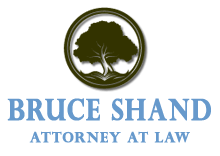Going Back To Basics
Recent tax law changes are turning traditional estate planning on its head. Indeed, moves long considered savvy–for example, aggressively shifting wealth to younger generations while senior family members are still alive or leaving assets to a “bypass” trust–may no longer be necessary to save estate tax and could now leave many families paying income tax they wouldn’t otherwise owe.
The beast – the estate tax – is not dead. Nevertheless, that multi-headed monster is far tamer these days. On the other hand, there is another less obvious tax monster that you cannot afford to ignore.
The capital gains tax.
The reason for the pivot from estate tax to capital gains tax has everything to do with the same legislation. Actually, it is a fairly recent change, as far as these things go. The budget deal of January 1, 2013, locked in a high estate tax exclusion amount and enshrined the ability for spouses to pass unused estate tax exemption amounts between themselves (so called, “portability”). In the same swoop, though, the capital gains tax jumped up another 8.3% to 23.8% from the previous 15%.
So, with this capital gains tax in mind, what does that mean for planning? This is a question Forbes explored in a recent article (intriguingly) titled “Freebasing Your Estate.”
The nut of the issue with capital gains is “cost basis,” a term for the original value against which the present value is used to determine the taxable portion of capital gain. Essentially, a “postmortem (at death) bequest” and an “intervivos (during life) gift” may transfer an asset with the same current value. However, they transfer a different cost basis to the inheritor and donee respectively. The inheritor inherits the “date of death” value as the basis of the inheritance. This is known as the “stepped up” basis. The donee receives and continues to hold the same basis held by the donor. This is known as the “carryover” basis.
With the estate tax now less of a concern, it makes more sense to transfer an asset at death rather than during your lifetime, all other considerations being equal.
What assets will you be transferring? Is the estate tax or is the capital gains tax a greater threat to your family wealth? Regardless, it is wise to keep in mind that what Congress puts into place it can just as easily undo.
Reference: Forbes (February 12, 2014) “Freebasing Your Estate”






